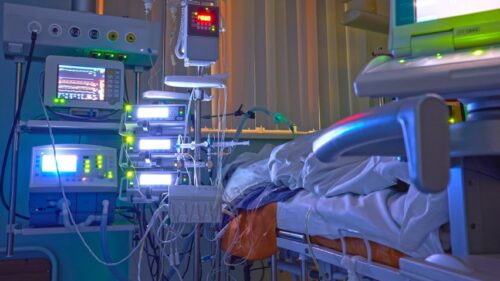Researchers at the Stevens Institute of Technology have developed an algorithm that could provide continuous and automatic monitoring of ICU patients’ consciousness easing the burden on clinicians from engaging in time-consuming tests

Physicians must conduct painstaking tests to analyze each patient’s level of consciousness. These tests are time-consuming and take approximately an hour to complete and are the only way to accurately spot a patient’s vital warning signs to understand if the patient’s health is declining. This develops an enormous burden on clinical teams. Hence, Kleinberg and her Ph.D. student Louis A. Gomez partnered with Jan Claassen, director of Critical Care Neurology at Columbia University developed an algorithm by collecting physiological data from a range of ICU sensors for eg. from simple heart rate monitors up to complex and sophisticated devices that measure brain temperature. The data received is used to predict the results of the clinician’s assessment of the patient’s level of consciousness.
“Consciousness isn’t a light switch that’s either on or off — it’s more like a dimmer switch, with degrees of consciousness that change over the day,” said Samantha Kleinberg, an associate professor in Stevens’ Department of Computer Science. “If you only check patients once per day, you just get one data point. With our algorithm, you could track consciousness continuously, giving you a far clearer picture.”
The developed algorithm can accurately track patients’ level of consciousness depending on simple physiological markers that are already continuously monitored in hospital settings. The results obtained after experimenting with this algorithm proved to be as accurate as a clinical examiner. The only accuracy was slightly affected when compared to tests conducted with expensive imaging equipment such as fMRI machines.
“That’s hugely important because it means this tool could potentially be deployed in virtually any hospital setting — not just neurological ICUs where they have more sophisticated technology,” Kleinberg explained. The algorithm could be implemented as a simple software module on existing bedside patient-monitoring systems, she noted, making it relatively cheap and easy to roll out at scale. Kleinberg said, “Consciousness is incredibly hard to study, and part of the reason is that there simply isn’t much data to work with,”. She added “Having round-the-clock data showing how patients’ consciousness changes could one day make it possible to treat these patients far more effectively.”
Kleinberg has a goal to improve the algorithm accuracy by adding more data to train the algorithm for use in other clinical settings such as pediatric ICUs.
Click here for the Published Research Paper






